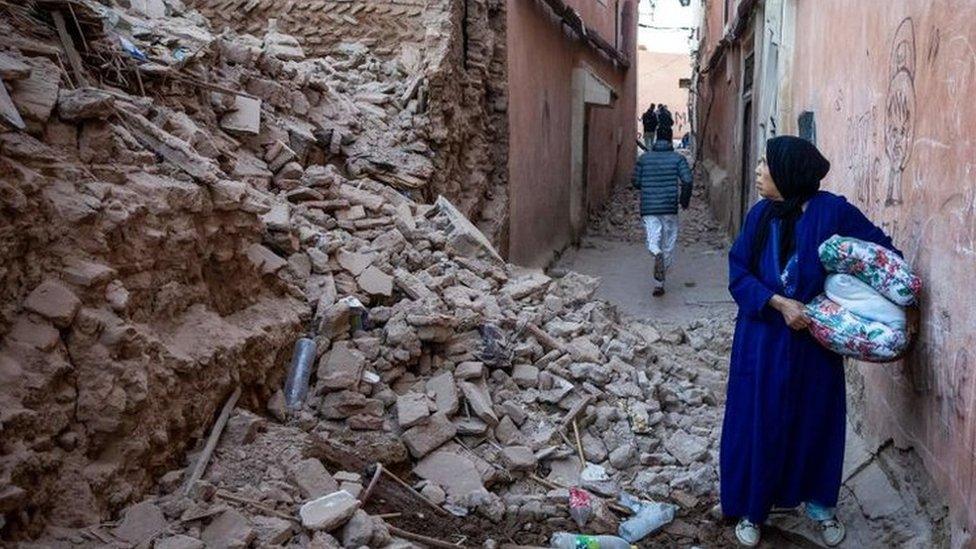Londoners share experience of Morocco earthquake
- Published
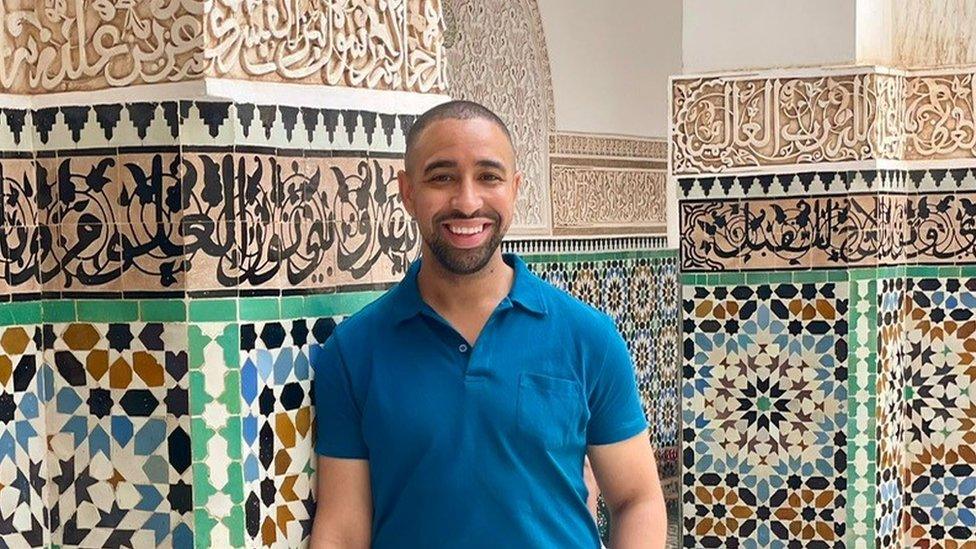
Aza Lemmer said: "I saw rocks coming down and then realised it was an earthquake"
Londoners in Morocco during last week's earthquake have shared their experiences of falling houses and panic.
More than 2,000 people have died following the 6.8 magnitude earthquake on Friday, which had an epicentre 44 miles (71km) from capital Marrakesh.
At least 1,400 more have been seriously injured.
Londoners visiting the north African nation said there was initial confusion as to the source of events.
Among them was Aza Lemmer, who lives in central London and is half-Moroccan.
He was on holiday in Marrakesh and out walking when the earthquake hit, saying he heard what sounded like an explosion.
He told the BBC he thought there had been a terror attack and explained: "I could feel the ground vibrating. I saw rocks coming down and then realised it was an earthquake.
"A house I just passed a few seconds earlier started to fall down."
He woke up residents at the place where he was staying and they all moved to safety.Mr Lemmer said while that property had withstood events, surrounding houses were affected.
"There was panic among the local people and tourists. People were screaming and running," he said.
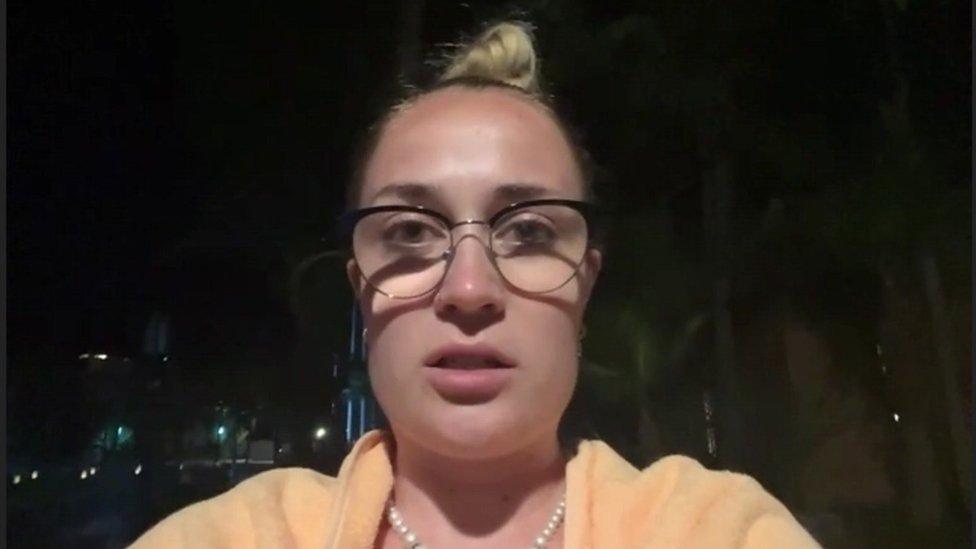
Lorella Palmer, who was staying in a hotel, said the room and picture frames were shaking
Lorella Palmer from south-east London was with her boyfriend in their hotel room in Marrakesh when the earthquake struck.
She said: "The room just started going mental and shaking. I think at first it felt like... there was someone hoovering the walls in the rooms next to us, and then we thought 'maybe its a massive helicopter'.
"I think your brain doesn't register straight away what's happening until the picture frames are shaking and the bed's shaking and everything else in between."
Also in Marrakesh were Richard Jones and his wife Janet from south London. The holidaymakers were staying in a riad just minutes from the main market when they were "woken by the whole world shaking around us".
Mr Jones said: "The water in the pool that is central to the riad was moving violently, and took ages to settle back down.
"We left and joined people in the square near where a collapsed minaret is.
"A truck... had its horn sounding, adding to the surreal atmosphere. People seemed lost, not knowing what to do."
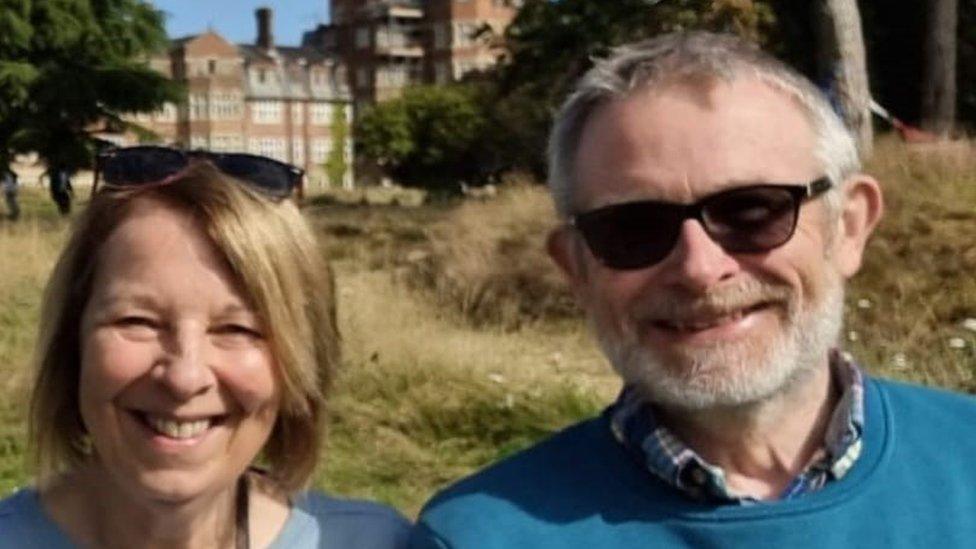
Richard Jones said after the earthquake happened "people seemed lost, not knowing what to do"
Mr Jones explained the worst of the damage near them happened at a "disused and not maintained property", but there was a lot of debris overall and some significant damage to other buildings.
He said he and his wife had since been walking around the city and some shops and cafes were open, with "restaurants offering chairs for people in the square last night".
Hamza Taouzzale, who sits on Westminster City Council and is of Moroccan descent, returned from a visit to the country a day before the earthquake.
He said: "It's close to home. That's where my family is from and that's where we're originally from, and I was just there.
"It's been quite sad, quite devastating and quite scary for a lot of people."
Mr Taouzzale has friends in the city of Meknes who told him, he said, that due to the rarity of earthquakes in the region, locals were unaware of earthquake safety protocols and had stayed out all night, unsure whether it was safe to return indoors.
He encouraged members of the public to support local Moroccan charities, particularly those that would provide aid to the country to help those worst-affected by the earthquake.

Follow BBC London on Facebook, external, Twitter , externaland Instagram, external. Send your story ideas to hellobbclondon@bbc.co.uk, external
Related topics
- Published10 September 2023
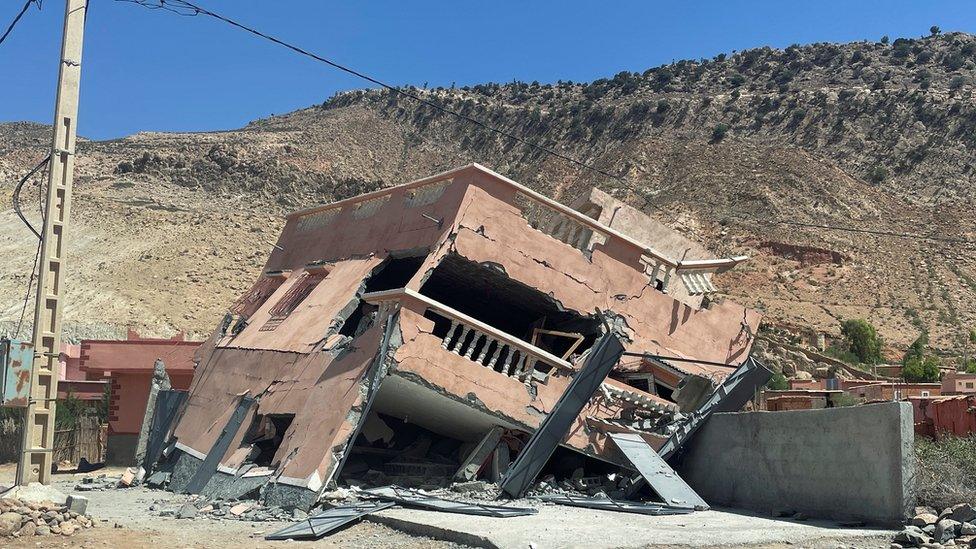
- Published9 September 2023
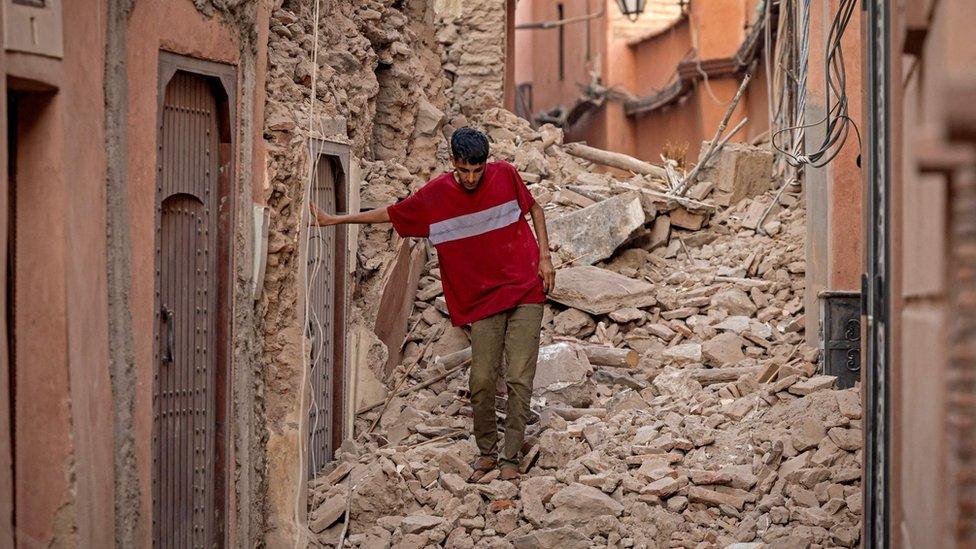
- Published9 September 2023
